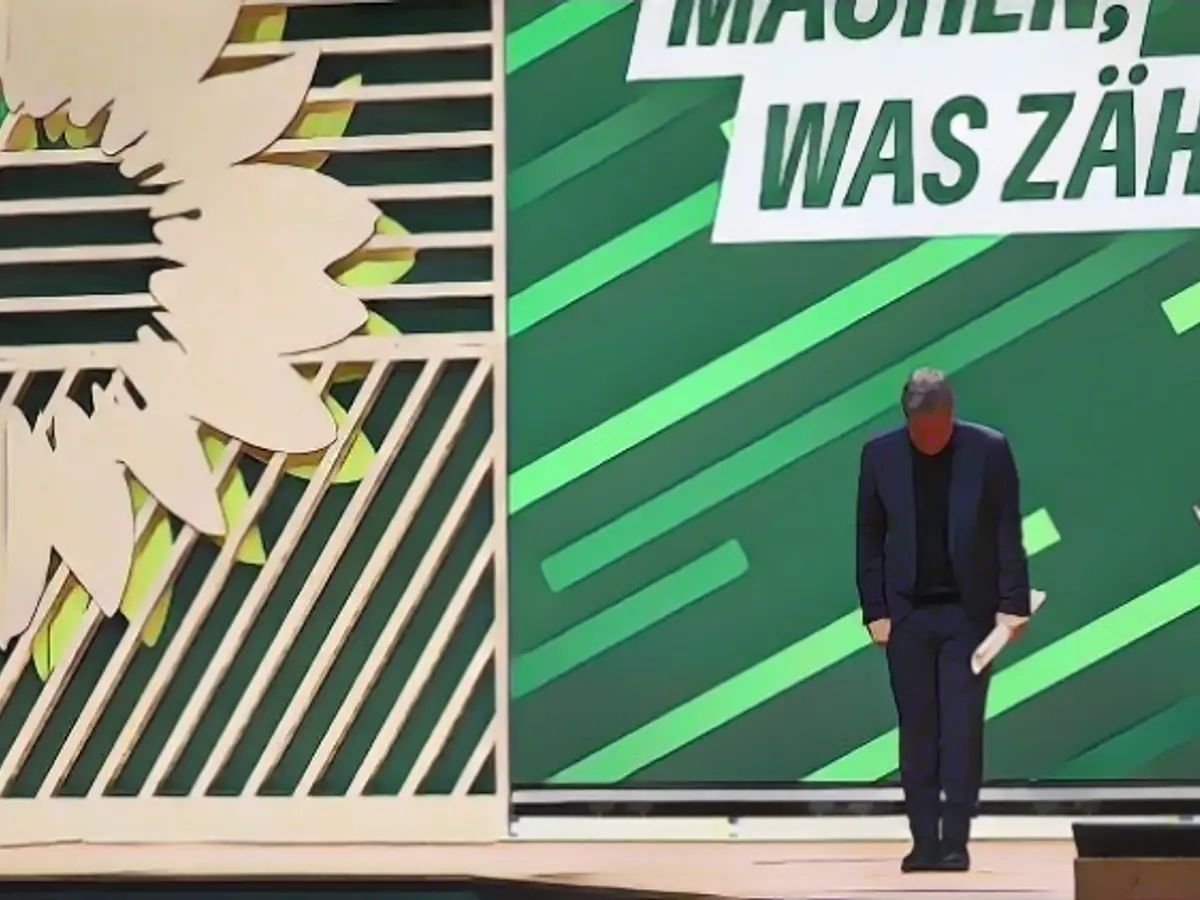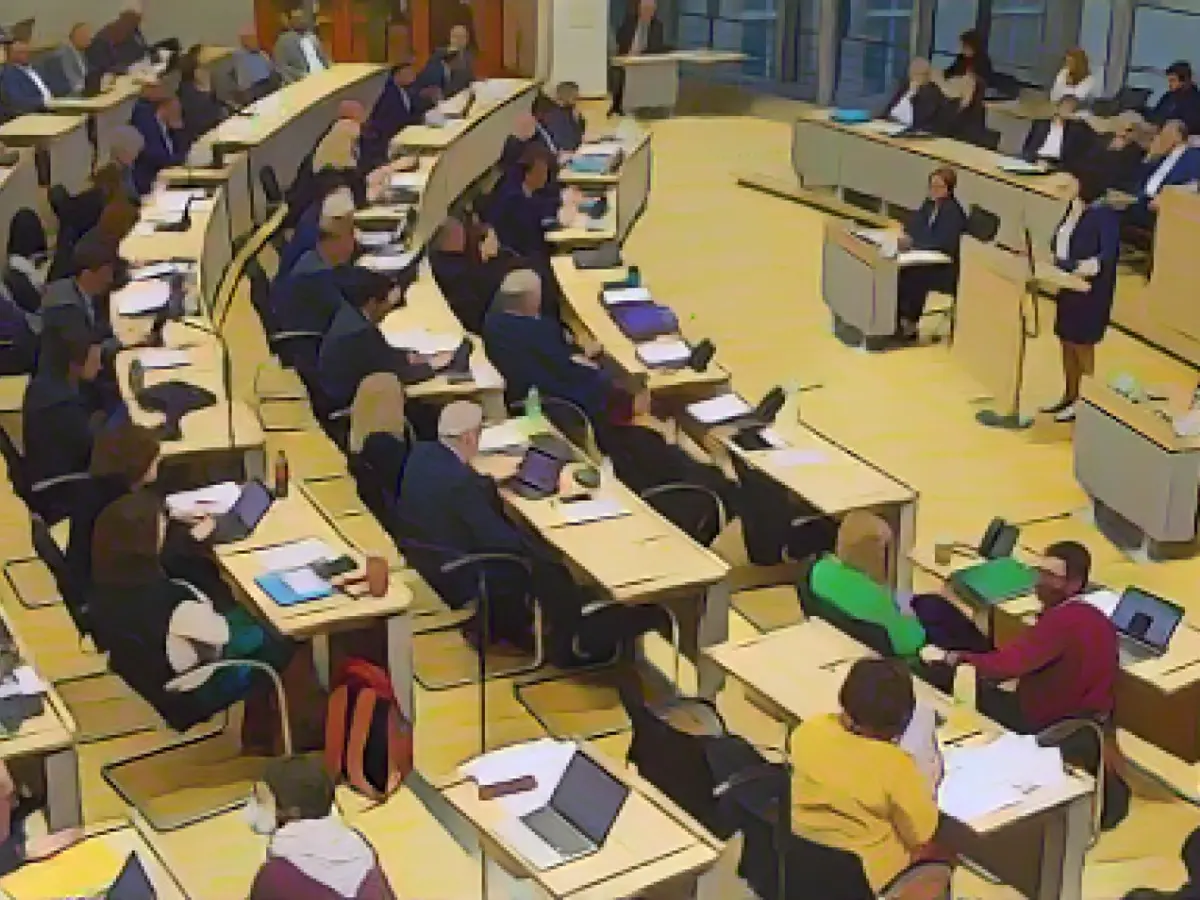In the heat of their annual conference, the Green Party wrestles with the implications of the debt brake ruling. Economics Minister Robert Habeck pushes back against the strict debt rule, likening it to entering a boxing match with one hand tied behind their backs while opponents wield horseshoes. The Greens, Habeck argues, are forced to watch as Germany's competitors invest heavily in the future, while they're left to merely punch the air with their unbound hand.
His critique isn't just reserved for the debt rule, though. Habeck lashes out at opposition leader Friedrich Merz, accusing the CDU of living in an abstract world and failing to meet the challenges of the present. Germany's problems, Habeck claims, are the result of the CDU's tenure in power, echoing a critique that the Grand Coalition's denial of reality has led the nation astray.
Despite criticizing Merz and the CDU, Habeck reassures the Green delegates that they're committed to adhering to the coalition agreement, which includes the continuation of the debt brake. However, he acknowledges that they need to reconsider their approach, urging the party to maintain its course in the face of challenging compromises and self-doubt.
While Habeck doesn't provide any concrete solutions for how the government can continue its investment in climate protection and industry restructuring without the 60 billion euros, another Green leader, Omid Nouripour, praises Federal Finance Minister Christian Lindner for suspending the debt brake for the current year. This move temporarily eases financial constraints on the federal government.
The debate continues as the Green delegates grapple with the challenges facing their country. The narrow victory of the traffic light coalition in the 2021 election and the recent survey suggesting a majority favoring a grand coalition fuel doubts about their political future. The Greens must navigate the complexities of the debt brake ruling, finding a balance between their ideals and the constraints imposed by the fiscal rule.
In the face of these challenges, Germany has several strategies to invest in climate protection and restructure its industry:
- Public-Private Partnerships (PPPs)
- European Investment Bank (EIB) financing
- Climate Contracts for Difference (CCfDs)
- IPCEI projects
- National Circular Economy Strategy (NCES)
- Private sector investment
- Digitalization and innovation
- International cooperation
By leveraging these strategies, Germany can continue to invest in its green future, even in the face of financial constraints.








